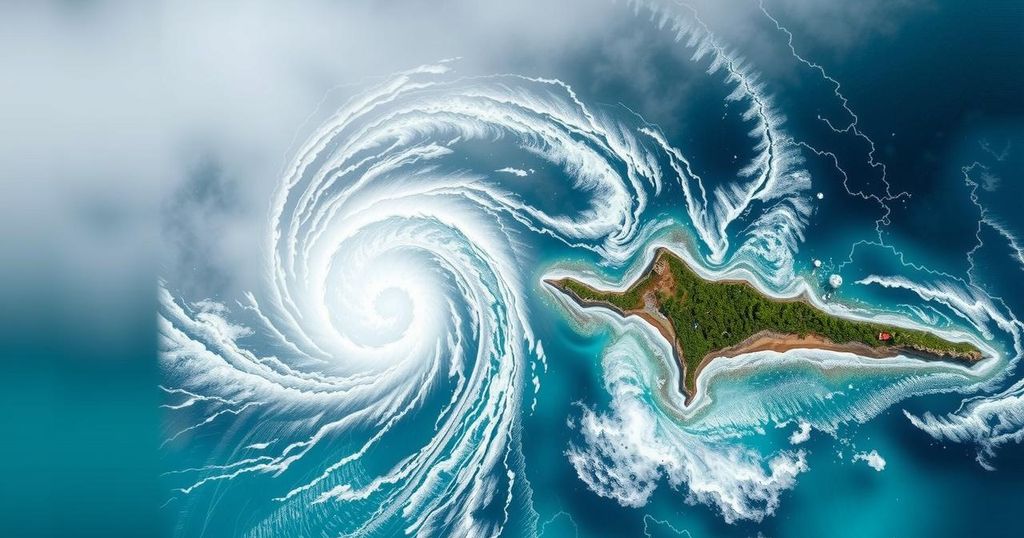Mayotte Faces Another Storm After Devastating Cyclone Chido
Mayotte has been afflicted by Tropical Storm Dikeledi just weeks after Cyclone Chido caused significant damage and loss of life. Authorities issued shelter-in-place orders and opened emergency shelters in response. The recent storms highlight ongoing humanitarian concerns regarding infrastructure and the plight of the island’s vulnerable populations, exacerbated by the region’s status as the poorest department in France.
The French territory of Mayotte has once again been struck by a tropical storm, Dikeledi, only weeks after Cyclone Chido left extensive devastation across the islands. The storm’s arrival prompted authorities to issue warnings for heavy rainfall and strong winds, urging residents to remain indoors and seek shelter. The population, still grappling with the aftermath of Chido, which claimed at least 39 lives and caused considerable infrastructural damage, faces the risk of further flooding and landslides. As of now, emergency personnel have been mobilized to respond to the ongoing crisis in this impoverished region.
Dikeledi made landfall following its transition from a cyclone over Madagascar to a tropical storm, approaching Mayotte with potential threats of its own. The French meteorological service has highlighted the need for caution, signaling that Dikeledi may regain strength. In addition to prioritizing public safety, shelters are being reopened to provide refuge for those affected, while the island’s only airport remains closed due to previous damages from Cyclone Chido. Residents of southern Mayotte, particularly in Mbouini, reported severe flooding from Dikeledi, indicating the precarious situation facing the island’s infrastructure.
This challenging scenario comes on the heels of Chido, which not only devastated local communities but also ignited frustration among Mayotte’s citizens regarding the perceived neglect by the French government. The situation has raised awareness of the vulnerabilities faced by Mayotte, which is home to a significant number of undocumented migrants seeking the benefits of the French welfare system. The department, officially a French territory, has long been marked by poverty and infrastructure struggles, issues exacerbated by repeated natural disasters.
As the cyclone season continues, authorities are on high alert, particularly in light of the recent history of severe storms in the region, including Cyclone Idai in 2019 that had far-reaching impacts in surrounding countries. Mayotte’s situation remains precarious, needing a robust and responsive recovery infrastructure to address both immediate needs and long-term resilience against future storms.
Mayotte, an overseas department of France, is situated in the Indian Ocean, east of the African coast. It has a population of approximately 320,000 residents, including an estimated 100,000 undocumented migrants. The region has recently experienced significant natural disasters, including Cyclone Chido which rendered large areas uninhabitable, creating a humanitarian crisis. The territory is noted as the poorest in the European Union, with its residents often alleging governmental neglect. The ongoing cyclone season from November to April poses continuous threats, as severe storms are common during this period, necessitating proactive disaster management and recovery efforts.
In summary, the recent tropical storm Dikeledi has further complicated the recovery efforts in Mayotte, a territory already struggling to cope with the extensive damage from Cyclone Chido. The simultaneous crises highlight the urgent need for sustained governmental support and resources to ensure the safety and recovery of the local population. Facing natural disasters regularly, Mayotte’s future resilience remains contingent upon effective emergency management and infrastructural investments.
Original Source: apnews.com




Post Comment